Main Menu
Latest Blog Entry
User login
The Top 5 Books of 2020

Here are my personal reading recommendations from this year. If you are stuck for ideas for presents or for something to read yourself then read on.
Like many people, I immersed myself in fiction this year and yes,
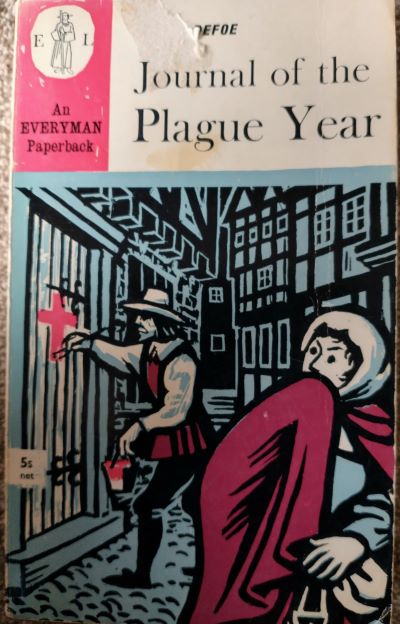
I did read Defoe’s ‘Journal of a Plague Year‘ that held worrying parallels with this year.
Because the libraries shut in March and their online ordering service was closed, I had to buy more books than I would like (supporting Blackwells and LizNoJan as a result).
I still managed to pick up many others from book-swap shelves, birthday presents and of course, my book maven Mandi Abrahams sent me some great ones.
This has meant that my Tsundoku shelf has been full. Having the next book lined up always helps me read more.
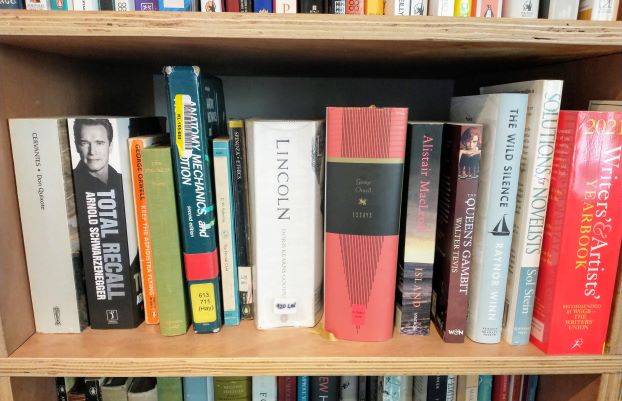
I read many good books, and several great ones, so I have had to split my Top 5 into separate fiction and non-fiction lists, so here goes. Please add any of your own ideas in the comments below.
Top 5 Fiction Books
A hard choice here because there were some dandies in the list but in no particular order:
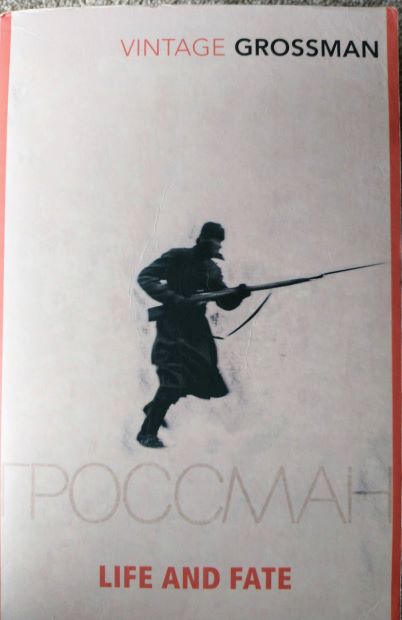
- The Shipping News: Annie Proulx. Sublime prose and similes to die for. A great human interest novel with the Newfoundland coast being a key part.
- The Milkman: Anna Burns. An excellent, moving novel about a young woman living in Belfast in the late 1970s. Outstanding writing.
- The Blind Assassin: Margaret Atwood. A superb, cleverly crafted and well-written novel about life in the 1930s in Canada. Contains an SF short story and a fantasy story within the main novel. Enjoyable to read and fathom.
- Life and Fate: Vassily Grossman. An epic novel about one family and their friends set in and around Stalingrad in WWII. The sparse Russian writing is a delight to read and the human stories are well placed against the horrific backdrop. Fantastic.
- The Dog of the Marriage: Amy Hempel. Four books in one. A sublime collection of short stories that are superbly written and entertaining.
Top 5 Non-Fiction Books
Again, I read some good ones, and those of you looking for coaching books might be disappointed. I went with the best writing and ideas (Academics who want their work read should learn how to write better).
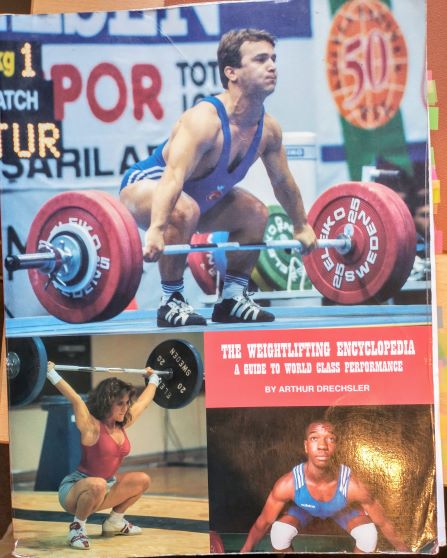
- The Body: Bill Bryson. A superbly written overview of what makes the body work, and the people who discovered how. A page-turner.
- Europe Between The Oceans (9000 BC-AD 1000): Barry Cunliffe. A comprehensive overview of the macro movements and events that have shaped our history. It uses the geography of our European peninsula to describe why peoples moved and traded and fought. Excellent.
- The Art Of Fact: Ed. K.Kerrane & B. Yagoda. A superb collection of essays, book excerpts and newspaper articles from scores of different authors. A showcase of literary non-fiction and an account of many different human stories.
- The Weightlifting Encylopedia: Arthur Dreschler. Written in 1998, this is a well-written, comprehensive guide to the sport. If it was published now it would have less text and more pictures. I like this edition. Great personal examples from the author and well laid out. Fantastic.
- Play Practice: Alan Launder & Wendy Piltz. An experience-based practical book about using developmental and “working model” games to help develop sports sense and ability. Based on the authors’ real-life mistakes and successes, it offers many practical ideas of relevant games for PE teachers. Very useful.
The full list of books with a short summary of each
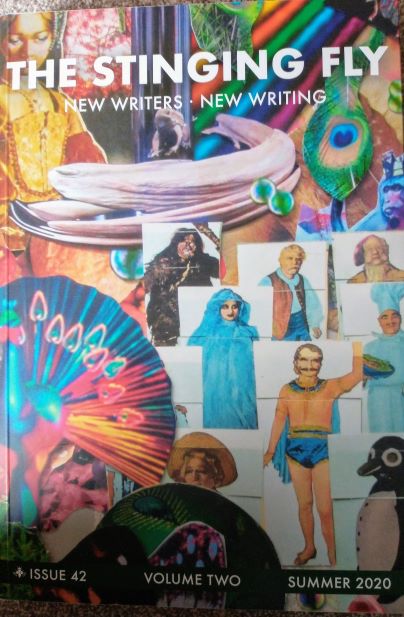
- A Slip of the Keyboard: Terry Pratchett. A series of newspaper articles and speeches made over 25 years. The first half is about writing and publishing, which is very funny. The second half is about his Alzheimer’s disease and how he is coping with that. Truly a great writer.
- Night Walks: Charles Dickens. Essays on his ramblings around London. His observations are witty and descriptive. I might make Dickens a thing to read every Christmas time now.
- What Matters Most: John Doerr. Objectives and Key Results (OKRs) form the backbone of this book. Case studies of this form of management. Very useful.
- James S. Corey: Tiamat’s Wrath. Sci-fi soap, wearing a bit thin now.
- Calypso: David Sedaris. 18 semi auto-biographical essays. Laugh out loud in parts. Very well written.
- The Stinging Fly (Summer 2019): Various. Modern writing, short stories and poems. The ‘Border’ focus was excellent, but some of the younger generations of writers are self-indulgent, only talking about their writing.
- The Body: Bill Bryson. A superbly written overview of what makes the body work, and the people who discovered how. A page-turner.
- Night Boat to Tangiers: Kevin Barry. Modern and interesting, raw prose. A bit too disjointed for me.
- A Movement Approach to Educational Gymnastics: Ruth Morison. Read for the 2nd time, got more out of having taught for 5 years now. Superb.
- The Modern Antiquarian: Julian Cope. A beautiful book that comes in a box! Covers pre-history in Britain and how the Romans and Christians wrote over what existed previously. has a gazetteer of dozens of stone circles, henges and dolmens in the UK. Very interesting.
- Emerald Eye: Various, ed Frank Ludlow and Roelof Goudriaan. A collection of SF and fantasy short stories from Ireland. Very good.
- An Introduction to Movement Study and Teaching: Marion North. Short, with some good ideas. A lot of dance and drama involved.
- The Depths: Henning Mankell. A Swedish novel about the navy in WWI. The interesting lead character is deeply flawed.
- Young Skins: Colin Barrett. A short story collection by this modern Irish writer. Set mostly in one fictional small town, great prose, interesting situations.
- Life Among the Savages: Shirley Jackson. Extremely well-written memoir of life in rural Vermont with young children. Funny and relevant 50 years later.
- And Then There Were None: Agatha Christie. Good plot, but dated and laborious writing.
- Dynamic Physical Education for Elementary School Children: Robert Pangrazi. A huge book, in-depth and lots of practical ideas. A must for p.e. teachers.
- The Buried Giant: Kazuo Ishiguro. A beautiful, sad mythical tale. A treat.
- Consider This: Chuck Palahniuk. An excellent book for writers about writing. Useful tips and relevant anecdotes.
- Socratic Discourses: Plato and Xenophon. Part of the Everyman’s library, wisdom from the wisest of all. Hard to get through due to the conversational style of writing, but useful nuggets in there.
- Anatomy For The Artist: Sarah Simblet. A sumptuous book by this Dr and artist. Great illustrations, I enjoyed reading this.
- Martin Eden: Jack London. A semi-autobiographical account of a struggling writer who burns out. Brilliant.
- The Dog of the Marriage: Amy Hempel. Four books in one. A sublime collection of short stories that are superbly written and entertaining.
- The Witcher: Andrzej Sapkowski. Time killing fantasy short story collection. Meh.
- Life In The Universe: Michael J. Farrell. What a collection of entertaining short stories. Funny and well written.
- With Lawrence in Arabia: Lowell Thomas. A super little book written in the aftermath of World War I, before Lawrence’s death. Very descriptive and atmospheric writing.
- Tales of Space and Time: H.G. Wells. 5 short stories/novellas. Interesting to see what Wells thought 2020 and beyond would look like.
- The Shipping News: Annie Proulx. Sublime prose and similes to die for. A great human interest novel with the Newfoundland coast being a key part.
- The Stinging Fly (Winter 2019): Various authors. Collection of short stories and essays. Very good writing.
- Hothouse: Brian Aldiss. Classic SF novel set on a future Earth which is dying. A Hugo award-winning journey of discovery.
- Britain BC: Francis Pryor. An extensive account of pre-Roman Britain. Lots of archaeology and description, well written and interesting.
- The Encyclopedia of Physical Fitness: Ed by Thomas Cureton & Reuben Frost. An overview of many sports and some dance and outdoor activities. Includes rules and histories of the activities: dated in parts, useful in others.
- Twelve Stories and a Dream: H.G. Wells. More misses than hits from this prolific writer feels a bit dated in parts. I like the way that he wraps up each story.
- The Pianist: Wladyslaw Szpilman. A sombre and understated account of one man’s miraculous survival of the Nazi occupation of Warsaw. Shows how random and arbitrary death was.
- The Revenant: Michale Punke. A novel of the Western frontier in the 1820s. More of a fictional history lesson.
- The Milkman: Anna Burns. An excellent, moving novel about a young woman living in Belfast in the late 1970s. Outstanding writing.
- Your Move: A New Approach to the Study of Movement and Dance: Ann Hutchinson Guest. An illustrated guide to Labanotation. Hard going but interesting. It is like learning a new language.
- Europe Between The Oceans (9000 BC-AD 1000): Barry Cunliffe. A comprehensive overview of the macro movements and events that have shaped our history. It uses the geography of our European peninsula to describe why peoples moved and traded and fought. Excellent.
- The Small Back Room: Nigel Balchin. Short novel about a scientific research unit in London during World War II. Interesting and niche.
- A Short History of English Literature: Sir Ifor Evans. This edition was written in 1963 and covers plays, novels and prose up until then. A useful guide.
- Midnight’s Children: Salman Rushdie. A hard read with very flowery prose.: one sentence was two pages long,. The story is interesting but I can’t see what all the fuss is about.
- Arizona Ames: Zane Grey. Disappointing and simplistic Western. A one-dimensional lead character.
- Life and Fate: Vassily Grossman. Epic novel about one family and their friends set in and around Stalingrad in WWII. The sparse Russian writing is a delight to read and the human stories are well placed against the horrific backdrop. Fantastic.
- Modern Short Stories: J. Hadfield (Ed). 20 stories from authors such as Conrad, Wodehouse and Pritchett, printed in 1962. Great examples of this form.
- The Stinging Fly (Summer 2020): Various, Edited by Danny Denton. A collection of essays, poems and short stories. The essays and a couple of the short stories were good, the poetry I can leave.
- The Weightlifting Encylopedia: Arthur Dreschler. Written in 1998, this is a well written, comprehensive guide to the sport. If it was published now it would have less text and more pictures. I like this edition. Great personal examples from the author and well laid out. Fantastic.
- Self-Editing for Fiction writers: Renni Browne and Dave King. An older book, very useful with clear examples and downright funny in places.
- Proverbs of Middle Earth: David Rowe. An informative book that shows how much thought went into Tolkien’s world-building.
- Proxopera: Benedict Kiely. Short novel about an old man and his family in Northern Ireland in 1977. Sad, funny, poetic. A good read.
- Play Practice: Alan Launder & Wendy Piltz. Experience-based practical book about using developmental and “working model” games to help develop sports sense and ability. Based on the authors’ real-life mistakes and successes, it offers many practical ideas of relevant games for PE teachers. Very useful.
- From Alamein to Zem Zem: Keith Douglas. Superbly written account of the 22-year-old’s journey in North Africa as a tank commander in WWII. Clear, personal, tragic and funny.
- Once There Was a War: John Steinbeck. Accounts from his time as a correspondent in England, North Africa and Italy during WWII. As usual, well-written and entertaining. How that man has lived inspires me.
- Tiny Habits: B.J. Fogg. A lot of book for a small amount of gain. Some useful ideas, but too much fluff.
- The Sportswriter: Richard Ford. Nothing to do with sports, just a novel about one man dealing with life over a weekend. Thought-provoking.
- Waylander: David Gemmell. A fantasy novel that I first read 30 years ago, simple page-turner.
- The Blind Assassin: Margaret Atwood. A superb, cleverly crafted and well-written novel about life in the 1930s in Canada. Contains an SF short story and a fantasy story within the main novel. Enjoyable to read and fathom.
- The Edge of the Sword: Anthony Farrar-Hockley. An autobiographical account of the battle of Imjin River in the Korean war and life in captivity. A ripping yarn that is understated and inspirational.
- Hero in the Shadows: David Gemmell. The third Waylander novel, read for the first time in 20 years. Interesting themes if a bit repetitive.
- Cat’s Eye: Margaret Atwood. Strange novel in which nothing much happens, similar style to Blind Assassin.
- Playing For Keeps: David Hamberstam. An account of Michael Jordan’s rise to prominence and dominance in the NBA. Well written with a good background on Jordan and his teammates and opponents.
- On Solitude: Michel De Montaigne. A short series of essays from the 16th Century French philosopher. Some good ideas.
- The Art Of Fact: Ed. K.Kerrane & B. Yagoda. A superb collection of essays, book excerpts and newspaper articles from scores of different authors. A showcase of literary non-fiction and an account of many different human stories.
- Roverandom: J.R.R. Tolkien. A story written for his young children before The Hobbit. Interesting to see how the author is developing ideas that he uses in later books and those that he abandons.
- Goodbye to All That: Robert Graves. Autobiography of the young poet’s life including his account of serving with the Royal Welch Fusiliers in WWI. Very good.
- The Bodysnatchers: Jack Finney. Classic SF story about alien seed pods taking over a small town in California. Part of the ‘reds under the beds’ genre.
- Fight Club: Chuck Palahniuk. A sparse, tightly-plotted novel about Generation X trying to find a life. Much quoted, but worth the read.
- Anatomy of Agility: Frans Bosch. The dense, complicated textbook that has some enlightening points. Not for beginners.
- E.M. Forster: Aspects of the Novel. A collection of Forster’s ‘Clark Lectures’. A short but delightful read.
- Albert Camus: The Myth of Sysiphus. A philosophical treatise about the absurd.
- The Collected Stories of Nabokov. Over 60 short stories in this huge volume. I was defeated halfway through so took an operational pause. Resumed and enjoyed about a dozen in the second half.
- The Alchemist: Paulo Coehlo. A short novel about a young man searching for meaning in life. A modern fable.
- Journal of a Plague Year: Daniel Defoe. The parallels with 2020 are uncanny. Interesting and depressing to see how little has changed.
- Penguin Science Fiction: Ed. Brian Aldiss. A collection of SF short stories published in 1962. Some great reads, including one by Steinbeck.
- The Salt Path: Raynor Winn. An autobiographical account of a suddenly homeless couple walking around the South-West coast path. An uplifting read, great descriptions of our local area.
- The Narrow Land: Christine Dwyer Hickey. A superb novel with Edward Hopper and his wife as central characters and Cape Cod as the location.
- The Man Who Walked Through Time: Colin Fletcher. One man’s journey on foot across the Grand Canyon National Park. Sometimes descends into a stream of consciousness but a reminder of how transient we are.
Further reading:
Client Testimonials
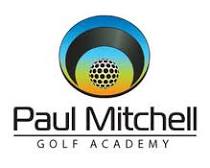 Paul Mitchell Golf Academy
Paul Mitchell Golf Academy
With twenty plus years golf coaching experience working with all levels of golfer, I have sought after specific physical training for my more elite players. In this quest, I have worked alongside trainers who have worked with the very best golfers in the world. I can hand on heart say that James is the […]
More


Comments
Just for a mo, I thought you were only going to give us the top 5 ! Interesting to see a bit of prehistory creeping in – B Cunliffe is epic. After the Deluge is one to follow up with. Got for daughter’s boyfriend’s Xmas, First Light: switching on stars at the dawn of time by Emma Chapman. She’s a young enthusiastic astrophysicist, research fellow with the Royal Astronomical Society. Heard her speaking on the Radio 4 Science programme. Daughter has been reading the Ted talk “Living on Mars”, always wise to be well prepared ! MAVEN ironically is a space probe which explores the Martian environment, apparently. Lot to live up to, being listed as a maven.
On plagues, good idea to read Defoe, I will take you up on that. I’m reading a 1959 Pelican Epidemic Diseases, fascinating history of epidemiology, also in the old Pelican Medical series The Human Machine, Dr Adolphe Abrahams (probably no relation) on how the body works. Also the 1921 history of flu epidemics available on Project Gutenberg. I comfort myself that the 1918 flu subsided eventually by itself enough to have 1920s flappers, the Great Depression and another World War.
2021 feels like a year for reading lots, mostly just for pure enjoyment and brain restoration after this strange year. Travel books might be popular as flying and generally going abroad seem like they might be hard work. Another great round up James.
More Plague literature: https://www.mod-langs.ox.ac.uk/oxford-polyglot/2020-21/1/lessons-2020-camus-la-peste
Love it when you post this list and I’m impressed as always by how much you read. Immediately distracted me from my work! This year I’m struck by the variety. I haven’t read any short stories for ages so I might give your recommendations a go. Have you ever heard David Sedaris reading his stories aloud on Radio 4? Very amusing and relaxing; available on podcast.
I loved The Salt Path, thought it was really well written and, as you say, uplifting with great descriptions of the coastal path. Did you know the hardback of the sequel, The Wild Silence, is out now? I’m waiting for the paperback in May. I read The Shipping News years ago and can still feel the atmosphere and weather in the novel even though I’ve forgotten some of the details. If you’re into Margaret Atwood, you might try The Handmaid’s Tale. I tried reading it about 20 years ago and couldn’t get into it but I read it last year and thought it was very good, though I can’t say it’s enjoyable. Dystopian setting. Haven’t read the ones you’ve read but by what you say, The Blind Assassin is the way to go.
Have you read any C.J. Sansom novels? I highly recommend everything by him but especially the Shardlake series, starting with Dissolution. Set in Tudor times, fantastic. Also, the Hilary Mantel trilogy is brilliant; I’m hoping to get the third and final novel from Father Christmas. Probably helps if you know a little about Henry VIII and Thomas Cromwell in her case but I don’t think it’s essential.
This year I’ve read more books than I have in a while but nowhere near your tally. One particularly great one was The Goldfinch by Donna Tartt. Years ago I read her Secret History, which was amazing. She churns out a novel about once a decade. The Goldfinch has some slow parts to it but it’s a meaty read and extremely satisfying. You might also like a couple of Joel Dicker novels, The Truth About the Harry Quebert Affair and The Baltimore Boys. Easy reads and quite enjoyable, though I noticed some storyline discrepancies in the sequel. Also read The Sound and the Fury by William Faulkner, which was pretty impenetrable if you feel like a challenge. It’s one where you just have to let the words flow over you instead of trying to understand what the heck is going on. Since I read it, I keep seeing it referenced everywhere and some people claim it’s their favourite novel of all time. Baffling to me but there’s no accounting for taste. Oddly though, I’m glad I read it and it does come back to my mind from time to time because there’s something very unique about it so who knows, you might love it.
Anyway, happy reading!
Thanks Sarah and Mandi for your ideas.
Interesting, our favourite short story and novella writer Carys Davies in a recent interview also says she struggled with The Sound and the Fury.
https://www.walesartsreview.org/the-joy-of-books-with-carys-davies/
Highly recommend Carys’ work, Sarah, if you are going for the short stories – or a Penguin collection of Welsh or Irish short stories.